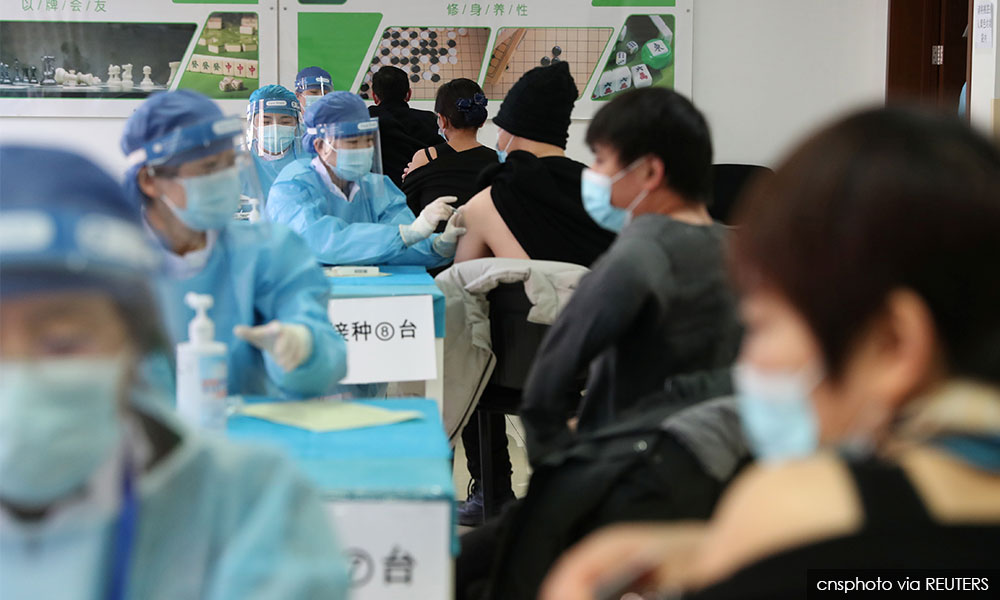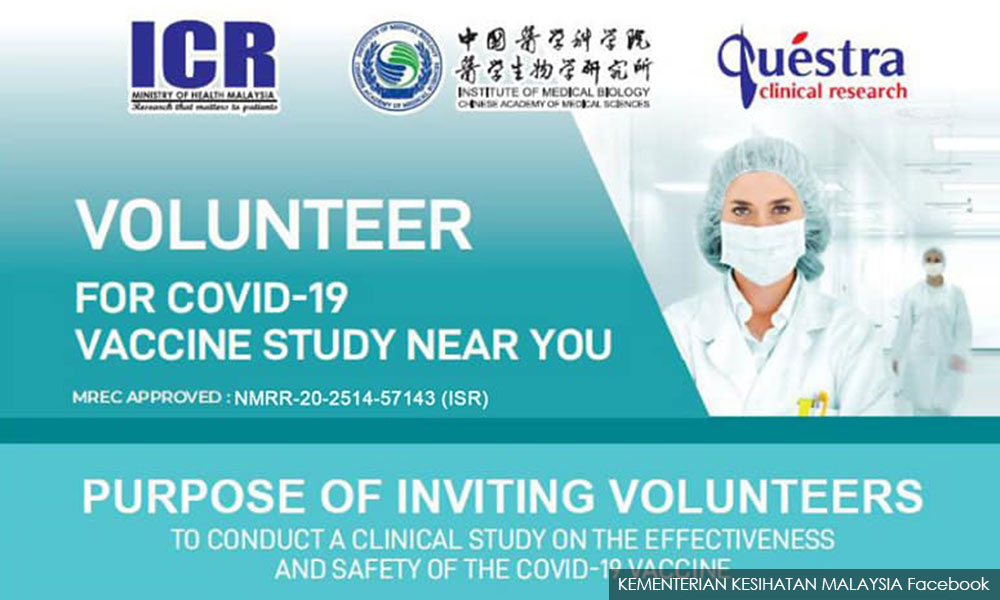The Health Ministry has made a call for 3,000 volunteers to help assess the safety and efficacy of a potential vaccine against Covid-19.
It is looking for healthy volunteers aged 18 years old and above to join a Phase III clinical trial on a vaccine candidate developed by the Institute of Medical Biology Chinese Academy of Medical Sciences (IMBCAMS).
It urged volunteers to help “contribute in the effort of finding a safe and effective vaccine to protect people for Covid-19”, according to a poster circulated by the ministry on Facebook last night.
The trial would begin on Jan 21. Interested persons may sign up by contacting one of nine participating clinical research centres based in hospitals nationwide.
“All regulatory requirements including ethical approval from the Medical Review and Ethics Committee, and finally the Clinical Trial Import Licence from the National Pharmaceutical Regulatory Agency, have been obtained on Jan 8,” the ministry said.
Phase III trials are the final round of testing before any vaccine or medicine can be approved for general use.
The poster touted that trial participants may benefit from becoming immune to Covid-19, as well as being tested for Covid-19 using the RT-PRC technique.
On the flip side, it said there might be risks of reactions to injections, such as swelling, pain, fever, and diarrhoea.
Interested individuals may contact the nearest clinical research centre, listed below:
- Sungai Buloh Hospital, Selangor – 011-1004 5343
- Ampang Hospital, Selangor – 016-728 6617
- Raja Permaisuri Bainun Hospital, Perak – 011-6331 1654
- Taiping Hospital, Perak – 019-854 6373
- Penang Hospital, Penang – 016-521 3055
- Seberang Jaya Hospital, Penang – 014-906 5518
- Sultanah Bahiyah Hospital, Kedah – 019-554 4976
- Sultan Abdul Halim Hospital, Kedah – 017-793 1938
- Sarawak General Hospital, Sarawak – 012-310 8108
The study is part of a much larger trial that would involve 34,020 participants in China, Malaysia and Brazil.
According to publicly available information, the trial calls for half of the participants to be randomly assigned to receive the vaccine or a placebo.
Each group would be injected with the assigned substance in two doses, 14 days apart. As per best practices for such studies, neither the volunteer nor his caregiver would know what each volunteer received, to avoid inadvertently biasing the results.
Participants would be observed for potential safety issues from the first dose to 28 days after the second dose. In addition, participants would be followed up for up to 12 months after the second dose to look for signs of serious adverse effects after vaccination.
They would also be monitored for both Covid-19 symptoms or positive test results, to assess the efficacy of the vaccine candidate.
The vaccine comprises laboratory-grown specimens of the virus that causes Covid-19, which had been inactivated in hopes of triggering the body’s immune response without the risk of infection.
The method had been used to manufacture vaccines for nearly a century, including most influenza vaccines.

IMBCAMS researchers have already reported the findings of the earlier Phase II trial on the same vaccine on Nov 9 last year in the journal Clinical Infectious Diseases.
The China-based researchers said they managed to enrol 742 participants, aged between 18 and 59, for the Phase II trial and found that it produced the desired antibody response.
Some participants reported adverse reactions, such as pain and redness at the vaccinated side, while a few also reported fever and fatigue. Nevertheless, no serious adverse effects were reported after the vaccination.
However, Phase II trials are only designed to determine the appropriate dosage for the vaccine and help spot common safety issues that might crop up.
The much larger Phase III trial is still needed to determine the efficacy of the vaccine against Covid-19 and help spot rarer adverse effects. - Mkini




No comments:
Post a Comment
Note: Only a member of this blog may post a comment.